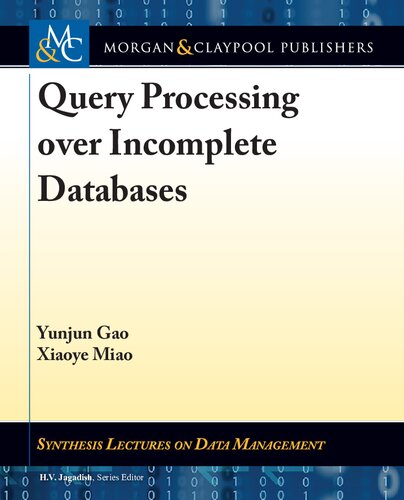

Most ebook files are in PDF format, so you can easily read them using various software such as Foxit Reader or directly on the Google Chrome browser.
Some ebook files are released by publishers in other formats such as .awz, .mobi, .epub, .fb2, etc. You may need to install specific software to read these formats on mobile/PC, such as Calibre.
Please read the tutorial at this link: https://ebookbell.com/faq
We offer FREE conversion to the popular formats you request; however, this may take some time. Therefore, right after payment, please email us, and we will try to provide the service as quickly as possible.
For some exceptional file formats or broken links (if any), please refrain from opening any disputes. Instead, email us first, and we will try to assist within a maximum of 6 hours.
EbookBell Team

4.8
44 reviewsIncomplete data is part of life and almost all areas of scientific studies. Users tend to skip certain fields when they fill out online forms; participants choose to ignore sensitive questions on surveys; sensors fail, resulting in the loss of certain readings; publicly viewable satellite map services have missing data in many mobile applications; and in privacy-preserving applications, the data is incomplete deliberately in order to preserve the sensitivity of some attribute values.
Query processing is a fundamental problem in computer science, and is useful in a variety of applications. In this book, we mostly focus on the query processing over incomplete databases, which involves finding a set of qualified objects from a specified incomplete dataset in order to support a wide spectrum of real-life applications. We first elaborate the three general kinds of methods of handling incomplete data, including (i) discarding the data with missing values, (ii) imputation for the missing values, and (iii) just depending on the observed data values. For the third method type, we introduce the semantics of k-nearest neighbor (kNN) search, skyline query, and top-k dominating query on incomplete data, respectively. In terms of the three representative queries over incomplete data, we investigate some advanced techniques to process incomplete data queries, including indexing, pruning as well as crowdsourcing techniques.